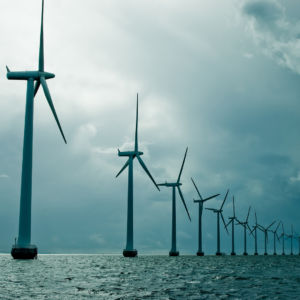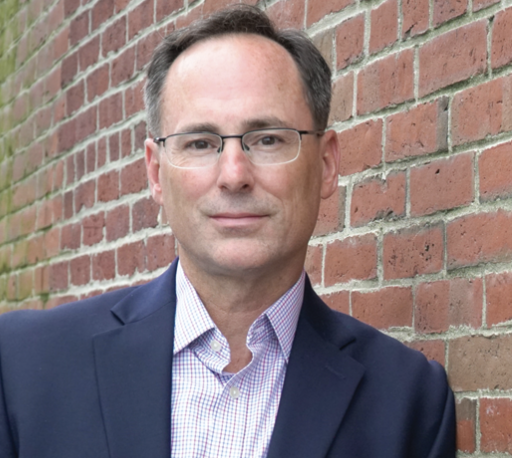This article first appeared at JBartlett.org.
Most of New England’s governors gathered in Boston last week, along with the premier of Newfoundland and Labrador, to agree that New England (and our Canadian neighbors) ought to help save the planet by committing to decarbonizing the region’s electrical generation.
They propose to do this by building a lot of windmills in the ocean.
“One of our discussions was building out an offshore wind supply chain here in New England and Canada to achieve true energy independence and save money for our residents,” Massachusetts Gov. Maura Healey said. “We also discussed the opportunity to create consistent pathways for decarbonizing some of the hardest-to-reach sectors of the economy, including heavy transportation, aviation, and commercial and industrial buildings. This alignment will allow us to use the clean energy we’re producing in the most effective ways possible.”
Lots of lofty goals. No projection of costs. Or efficiency.
But why worry about such things when we’re all one big family?
“Several governors, actually, and premiers today said that the region is more than shared geography and shared resources. It truly is a family,” said Andrew Furey, premier of Newfoundland and Labrador. “And when you’re tackling the complex challenges and problems that exist in the world today, including changing geopolitical tensions, energy demands and how we’re going to tackle the big problems of climate change, that can only be strengthened when you have a familial relationship like we do amongst us.”
Viewing the relationship between government and citizens as familial is a foundation of progressivism. Government officials are the equivalent of parents tasked with making decisions on behalf of children, who by their nature are not developmentally equipped to make decisions for themselves.
In case you’re wondering, you’re the children.
Government, your benevolent protector, must make decisions on your behalf. Only wise and educated elites have the training, knowledge and understanding to decide what should power your home or vehicle, what school your children may attend, what businesses should be allowed to succeed or fail.
This conception of polity as family inverts the Founders’ conception of republican government. In the United States (we can’t speak for Canadians’ strange and mysterious ways), citizens are sovereign. Citizens own, control, and direct the government, not the other way around. Decisions are made by free individuals negotiating within the boundaries of narrowly limited government powers. In families, parents decide, kids obey.
Besides, has any Granite Stater ever seen Premier Furey at a family reunion?
Massachusetts Gov. Maura Healey, Maine Gov. Janet Mills, Vermont Gov. Phil Scott, Rhode Island Gov. Daniel McKee and Connecticut Gov. Ned Lamont are using this “family” approach to energy policy. They view it as their duty to decide for the rest of us that our homes, offices, stores, factories, trains, autos and even aircraft must be powered wind and solar generation to the exclusion of other alternatives, regardless of cost, reliability or efficiency.
(New Hampshire Gov. Chris Sununu wisely avoided the embarrassment of attending such a confab of conceit.)
Meanwhile, ISO New England, the region’s power grid operator, dropped a report in August estimating that the region would need to build nearly 100 gigawatts (GW) of new wind, solar and battery storage capacity to meet renewable energy policy goals by 2050.
And the report raised a host of red flags regarding the reliability of that power in New England.
Because wind and solar generate power intermittently, their construction will require the building of massive battery storage facilities in addition to the power generation facilities.
“Long-duration storage may help meet high demand during shorter cold snaps, but not over more extended periods of severe winter conditions,” ISO New England warned.
To decrease the region’s reliance on the unreliable energy sources most New England state governors are obsessed with building, ISO New England suggested building additional synthetic natural gas or nuclear power capacity.
“Firm, dispatchable, zero-carbon generation would help ensure reliability during these periods,” the report states.
The study “explores the use of synthetic natural gas (SNG) and small modular nuclear reactors (SMRs) as possible zero-carbon candidates in the future grid, and finds that such resources may reduce overall system costs by reducing the need for new renewable capacity.”
ISO New England pointed out that 15,119 GW of new modular nuclear reactors would reduce the need for new wind and solar capacity by 57 percent. That’s a huge reduction in wind, solar and battery construction for a comparatively small increase in nuclear power generation.
While most of the region’s governors are announcing their intention to build huge offshore wind farms that won’t produce reliable power during periods of peak demand, the region’s energy grid operator is all but shouting that nuclear or synthetic natural gas generation would be both cheaper and more reliable (not to mention much more efficient).
But in our great, big New England/Canadian political family, even the energy grid operator is relegated to child status. Only mommy government knows best.
Maybe mommy government will bring you a blanket when demand peaks in January and the windmills can’t handle the strain.





